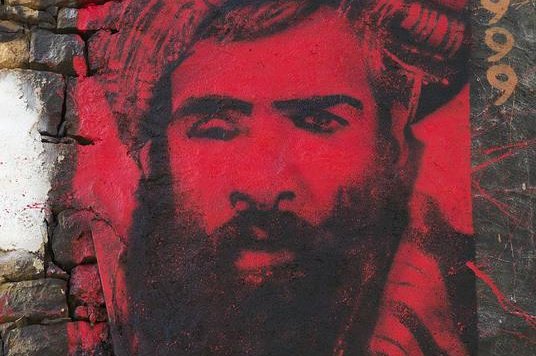A painted portrait of Mullah Mohammed Omar, leader of the Taliban in Afghanistan, who recently indirectly supported peaceful negotiations to end the country's 14-year war. File Photo by thierry ehrmann/Flickr
KABUL, Afghanistan, July 15 (UPI) -- Mullah Mohammed Omar, leader of the Taliban in Afghanistan, has indirectly supported peace talks with the government to mark Ramadan's Eid al-Fitr festival.
The reclusive leader's message, delivered Wednesday, did not refer to current peace negotiations between the Taliban and Afghan government, but said Islam does not prohibit "peaceful interaction" with enemies.
The message also said that working for the Taliban's goals of fighting foreign occupation and establishing an Islamist system through "peaceful pathways" were legitimate.
The Afghan government and Taliban met last week near Islamabad, Pakistan, in efforts to reach a settlement to end the 14-year war. It was the first time face-to-face negotiations have taken place between the sides.
"If we look into our religious regulations, we can find that meetings and even peaceful interactions with the enemies is not prohibited," Mullah Omar said in the statement. "It is our legitimate right to utilize all legal pathways."
The Taliban has escalated attacks on Afghan officials in recent months. Mullah Omar said that it is "obligatory upon us to continue our sacred Jihad" because there are still foreign troops in Afghanistan.
Omar's address also made an apparent reference to the Islamic State, which has gained support through its affiliate in Afghanistan
"We have... directed all our mujahideen to preserve their unity and forcefully prevent all those elements who attempt to create differences," the statement said.
At least 27 civilians and six Afghan security personnel were killed after a car bomb explosion on Sunday and on Monday a bomb planted inside a mosque wounded 25 people, but no group has claimed responsibility for the attacks.















